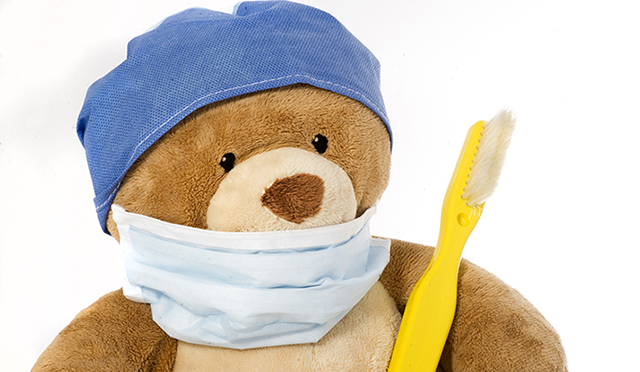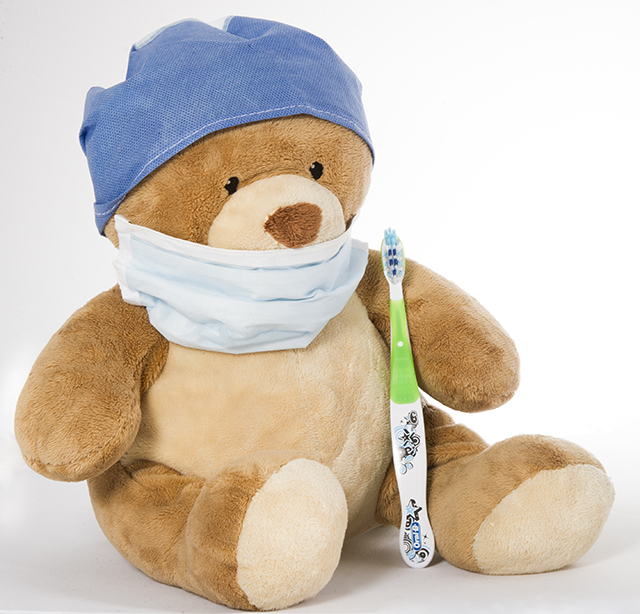Follow-up oral care: the new normal for childhood cancer survivors

Today, because of advances in treatment, more than eight out of 10 children treated for cancer survive at least five years, most into adulthood. However, the same treatments that help these children survive can also cause immediate and late-term health effects, even in the mouth.
Because childhood cancers tend to be fast growing and cancer therapies — chemotherapy and radiation — target rapidly dividing cells, children usually respond well to treatment. Besides, their bodies are generally better able to recover from higher doses of chemotherapy than adults, so using more intensive treatments gives oncologists a better chance of treating the cancer effectively. However, several parts of the human body including the mouth, hair and stomach are made up of these rapidly dividing cells and can be impacted by the treatment.
 “The effects of cancer treatment on a child’s oral cavity depend largely upon the type of cancer treatment, chemotherapy versus radiation, and the timing of treatment,” says Carolyn Kerins, associate professor in pediatric dentistry at Texas A&M University Baylor College of Dentistry. “The effects of chemotherapy vary based on type of drugs used, their doses and frequency. The side effects of radiation will depend on the dose of radiation and location of the radiation beam.”
“The effects of cancer treatment on a child’s oral cavity depend largely upon the type of cancer treatment, chemotherapy versus radiation, and the timing of treatment,” says Carolyn Kerins, associate professor in pediatric dentistry at Texas A&M University Baylor College of Dentistry. “The effects of chemotherapy vary based on type of drugs used, their doses and frequency. The side effects of radiation will depend on the dose of radiation and location of the radiation beam.”
Oral complications that can occur during cancer therapy include cavities, dry mouth, changes in taste, bleeding, painful swelling and ulcers in the mouth. Although dentists can prescribe medications to manage these conditions, they often improve after treatment is discontinued. However, some complications are persistent or may not show up until months, or even years, after treatment.
“Chemotherapy interferes with the cell division and intracellular metabolism and will cause delayed dental development,” Kerins says. “This may be seen as stunting of tooth roots, absence of one or more teeth, abnormally small teeth or enlarged pulped chambers.”
Once teeth are fully developed, Kerins explains, chemotherapy and radiation has a dramatically reduced affect on them. It’s the teeth that are still forming that are impacted by the treatment, especially radiation, which has far more detrimental effects on the developing permanent teeth by halting their maturation.
“Radiation damage is non-reversible and affects the alveolar bone (the bone that contains the tooth sockets), the periodontal ligament (connective tissues that attach a tooth to the alveolar bone) and the pulp tissue (soft tissue that forms the center of a tooth that contains the nerves and blood vessels),” Kerins says.
It is likely that pediatric patients who have received radiation in the head/neck region may require prosthodontic management later in life. “The more focused the beam, the lesser the field of damage,” she says.
Childhood cancer survivors are also at risk of reduced bone mineral density, which persists into adulthood and may increase bone fracture risk at an older age. Prolonged high doses of radiation can lead to necrosis (death) of the bone.
It is worth noting that good oral health care is important before, during and after cancer treatment.
“Ideally, each child should have a comprehensive dental exam prior to the initiation of chemotherapy and/or radiation,” Kerins says. “Any decayed teeth should be restored prior to treatment and any teeth requiring extraction should be extracted prior to therapy.”
During chemotherapy, oncology patients should maintain routine dental visits. “As chemotherapy is usually administered in a cyclic nature, it is ideal to see the patient when the blood counts are close to normal, or the day before the next round of chemotherapy is administered,” Kerins says. “As the patient undergoing chemotherapy is immunocompromised, it is advisable to give antibiotic prophylaxis prior to the appointment. Patients should have routine dental cleaning and fluoride therapy every six months.”
If the patient develops swelling and ulcers in the mouth during treatment, mucosal coating agents or topical anesthetics may be prescribed.
According to Kerins, patients occasionally develop a secondary intraoral infection such as candida or herpes while undergoing chemotherapy. She says the pediatric dentist can prescribe the appropriate antifungal medication to treat the candida infection. To prevent herpes infection, cancer patients routinely take anti-viral drugs.
Although the side effects of cancer therapy can be frustrating, they are the result of life-saving treatment. It’s important to realize that follow-up care is essential and offers the best chance for long-term, overall health.